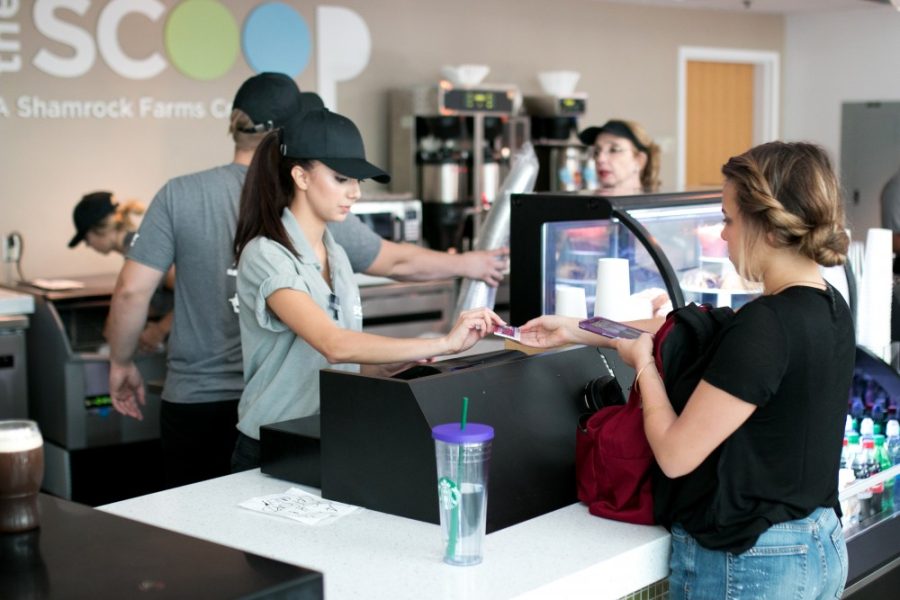Proposition 206, also known as the Fair Wages and Healthy Families Initiative, will be responsible for the minimum wage raise in January, affecting all Arizonans, including UA student workers.
The minimum wage will increase to $10 Jan. 1, 2017 and gradually go up to $12 by 2020. Full-time minimum wage workers make $16,744 per year now. With the increases, by 2020, employees would receive an annual income of $24,960.
Hana Ensley, a sociology senior and Scented Leaf employee, said that the increase in minimum wage is great, considering it hasn’t had a remarkable increase in over 30 years.
“I do a lot for both of my jobs, so it’ll be nice to have that increase,” said Lauren Schenk, a senior studying speech language and hearing sciences who works at Collette boutique and the UA Bookstores. “I think it’ll be really good initially, but then I think everything else will raise in prices and it’ll take a toll.”
Jesse Scott, a sophomore studying biochemistry and molecular and cellular biology who works at The Scoop, Pangea and RoadRunner, said he voted against Proposition 206.
He said he disagrees with it on the basis that raising minimum wage will help people that are at the lowest end of the spectrum but hurt people at other ends of the spectrum because all prices will go up.
“I think the Student Union will try to cut hours of students primarily because students are at the minimum wage and they will use more full-time employees,” Scott said.
Schenk said she is aware of the possibility of students hours being cut.
She said during the school year it won’t be that bad, but it will have a downfall during the summer when many students are still paying their bills and want to make more money.
“Minimum wage isn’t a living wage,” Ensley said. “I don’t think most students understand the effects of minimum wage not being a living wage, because most of them don’t have to pay their bills. But I do because I’m 29, so I know drastically how much we need an increase in minimum wage. I do think it will have an adverse effect on small business owners.”
Ensley said she thinks the increase came a little too late, saying it’s a nice start but the wage labor system in the U.S. is not functional.
Bill Scheel, the campaign manager for prop 206, said the increase in minimum wage is going to make it a lot easier for students who will be trying to make their way through college.
“All of these college students who are working bars and restaurants are going to have the ability to earn sick leave so they don’t have to worry about losing their job,” Scheel said. “This is going to make life a lot easier for working Arizonans, and it’s going to be good for the Arizona economy.”
James Skinner, a finance junior who works at The Scoop, said he feels the raise is good but it might not make that much of a difference because of the possibility that prices will inflate.
“On a personal level I am happy about it, but overall it doesn’t really make a lot of sense in my opinion,” Skinner said. “I have heard that the union is not planning on raising food rates, so if that is the case it would be incredible for those who eat and live on campus.”
Skinner said he thinks one of the responsibilities of the Student Unions is to provide jobs for students.
“I think that a lot of places won’t function under-staffed; there are going to be students who won’t being able to get their lunches because it took them 45 minutes,” Ensley said. “If the UA tries to supplement paying their students more by not paying enough of them, they’re going to have a strong reaction because a lot of subsidies are at the UA based on the fact that they’re giving the students labor. Ultimately, the university is going to have to get over it.”
Follow Angela Martinez on Twitter.









